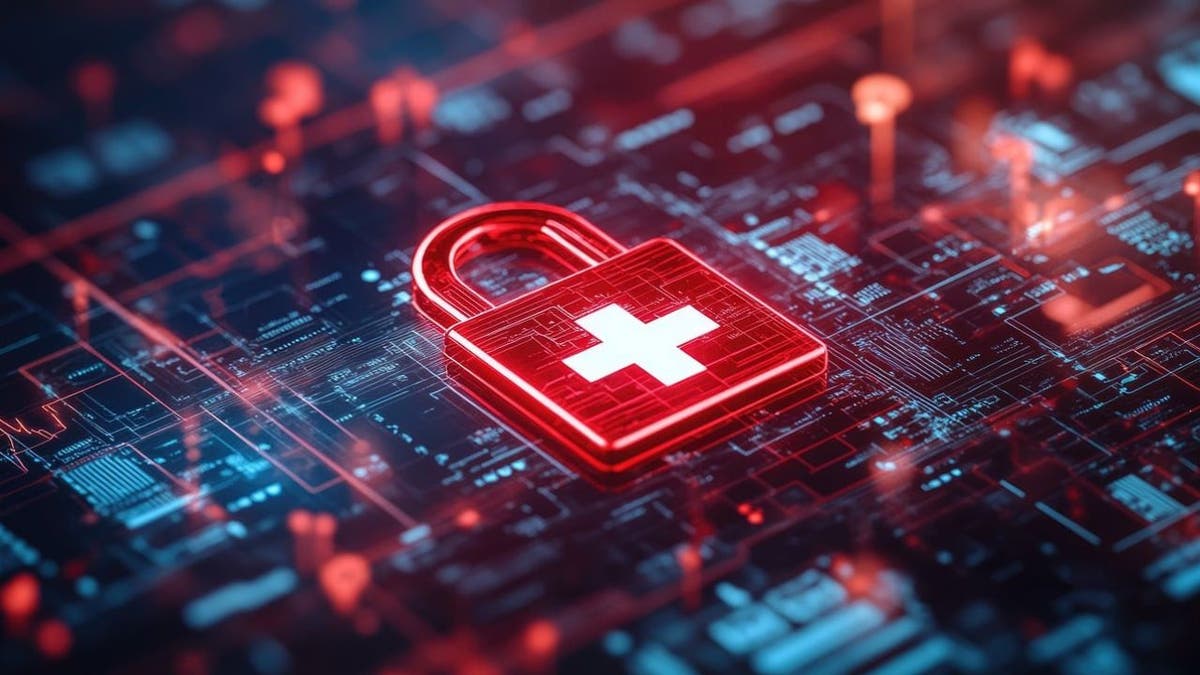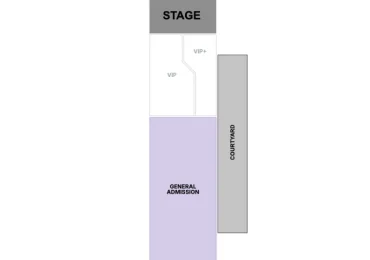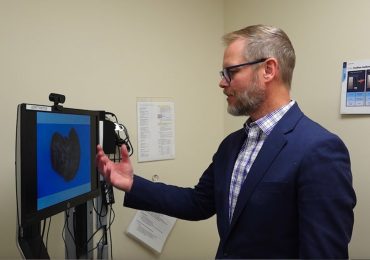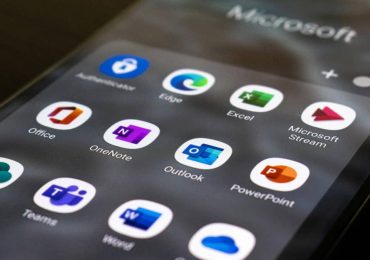If your healthcare data hasn’t been breached in 2024, then you either don’t know it yet or should consider yourself very lucky.
That’s because 2024 was a nightmare year for healthcare institutions and patients in the U.S. A total of 184,111,469 records were breached. That’s 53% of the 2024 population of the United States.
This staggering figure represents a significant increase from previous years, setting a new and alarming record in healthcare data breaches.
The healthcare sector faced unprecedented challenges in cybersecurity, with attacks becoming more frequent, sophisticated and damaging than ever before.
I’M GIVING AWAY THE LATEST & GREATEST AIRPODS PRO 2

Illustration of a hacker at work stealing healthcare data (Kurt “CyberGuy” Knutsson)
Health check or data leak?
Being admitted to a hospital is stressful enough. It caused additional stress for the 100 million clients of Change Healthcare, whose data was exposed following a breach orchestrated by the BlackCat ransomware group. Not only did the breach expose sensitive health information, but it also caused widespread disruptions in claims processing. Patients and providers across the country faced chaos as the breach impacted their ability to access and pay for healthcare services.
The second significant breach occurred at Kaiser Foundation Health Plan, where the personal data of 13.4 million individuals was compromised. This breach involved unauthorized access and the use of tracking technologies that transmitted user interactions to third parties.

Illustration of healthcare data needing to be locked up (Kurt “CyberGuy” Knutsson)
HACKERS CLAIM MASSIVE BREACH OF COMPANY THAT TRACKS AND SELLS AMERICANS’ LOCATION DATA
Your health data gets breached, so what?
You’ll receive a notification letter, although be aware that it may take months before it reaches you (as was the case for victims of the Ascension Health data breach). The consequences are real and can be very painful. Medical identity theft directly affects patients’ health and safety. It happens when criminals use stolen personal health information to obtain medical services or medications under another person’s name. It can result in incorrect medical records being created that can include inaccurate diagnoses, allergies or treatments.
And as you may have guessed, it can also result in financial repercussions, such as patients getting fraudulent claims and bills for services they did not receive. Resolving these issues with insurers and healthcare providers takes time and mental strength. And you’re probably not in a hurry to see your breached healthcare provider ever again. That’s normal. A study has shown that up to 54% of patients consider switching providers after a data breach.
WHAT IS ARTIFICIAL INTELLIGENCE (AI)?

A doctor looking at healthcare data on a screen (Kurt “CyberGuy” Knutsson)
ARE DATA BROKERS ENDANGERING YOUR RETIREMENT SECURITY?
When health data gets into the hands of data brokers
Sensitive health information can easily be combined with personal identifiers from data brokers, creating comprehensive profiles that criminals can exploit. As a reminder, data brokers are companies that specialize in collecting, processing and selling personal information from various sources, including public records, online activities and social media.
They aggregate this data to create detailed consumer profiles that can be sold to marketers, insurance companies and other entities for various purposes. The more detailed the profile, the higher the chance of identity theft and potential discrimination in employment and insurance. Employers might make hiring decisions based on perceived health risks, while insurers could deny coverage or increase premiums.
GET FOX BUSINESS ON THE GO BY CLICKING HERE

A doctor and patient in a healthcare facility (Kurt “CyberGuy” Knutsson)
THE HIDDEN COSTS OF FREE APPS: YOUR PERSONAL INFORMATION
Wash your hands, remove your data
You can’t prevent a data breach, but you can minimize its consequences by reducing your digital footprint overall.
1. Set your social media to private: Restrict access to your personal information and limit what strangers can see about your life and potentially your health status. Ensure your privacy settings are robust and regularly updated to prevent unauthorized data collection.
2. Remove your personal data from data brokers’ databases: Either by searching for your name on people search sites and requesting removals, one by one, or by using a data removal service. Data removal services automate data removal for you and let you track where exactly your data has been found and whether it was removed, not only on people search sites, which are public data brokers, but also on hidden, private databases where you can’t look yourself up (and these are the worst).
Once your data is removed, data removal services monitor data brokers for your data and remove it again as needed (because it has a tendency to be re-listed after a while). This way, you prevent data broker companies from compiling a full profile on you and selling it to the first bidder, whether that’s a hacker, a marketing agency or an insurance company. Check out my top picks for data removal services here.
3. Delete all unused apps on your phone: Unused applications can be hidden gateways for data leakage and potential security vulnerabilities. Regularly audit and remove apps that you no longer use or need.
4. Check the permissions of the ones you want to keep: Review each app’s access to your personal data, location and device features to ensure you’re not inadvertently sharing more information than necessary. Be particularly cautious with health and fitness tracking applications.
5. Use a VPN (virtual private network) when browsing: Encrypt your online activities and mask your digital location to add an extra layer of anonymity and protection. A reliable VPN can help shield your personal information from potential interceptors and data miners. For the best VPN software, see my expert review of the best VPNs for browsing the web privately on your Windows, Mac, Android and iOS devices.
Kurt’s key takeaways
The reality of healthcare data breaches is daunting, but it’s not entirely out of your control. While you can’t prevent breaches from happening, you can take steps to minimize the risks and protect your personal information. Think of it as adding locks to your digital doors: set your social media to private, use a VPN and clean up unused apps. Remember, the less information you leave out there, the harder it is for bad actors to exploit it. Stay vigilant and don’t let your data become someone else’s advantage.
CLICK HERE TO GET THE FOX NEWS APP
How do you feel about the growing risks to your personal information, and what steps have you taken to protect your data? Let us know by writing us at Cyberguy.com/ContactCyberguy.com/NewsletterAsk Kurt a question or let us know what stories you’d like us to coverCyberGuy.com.









